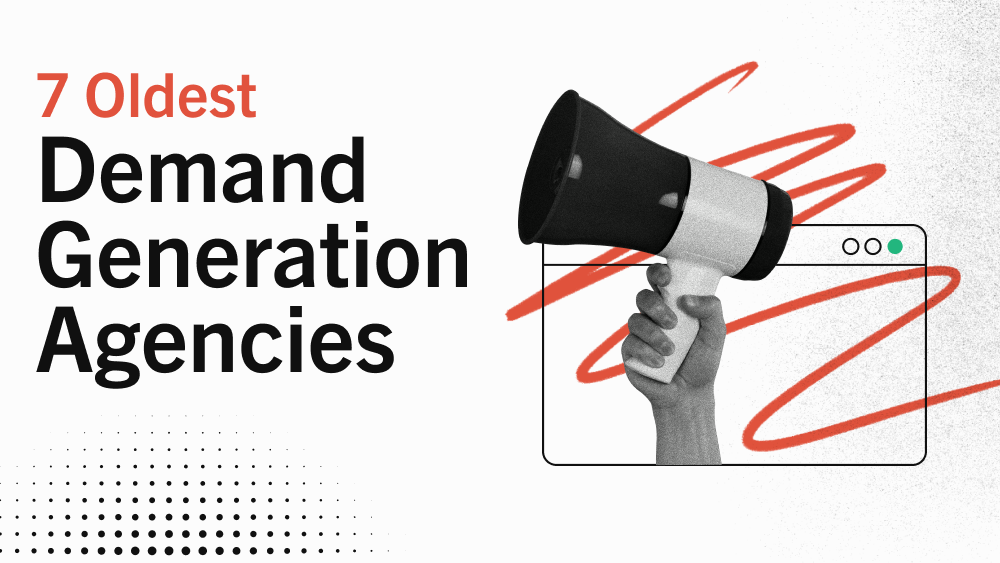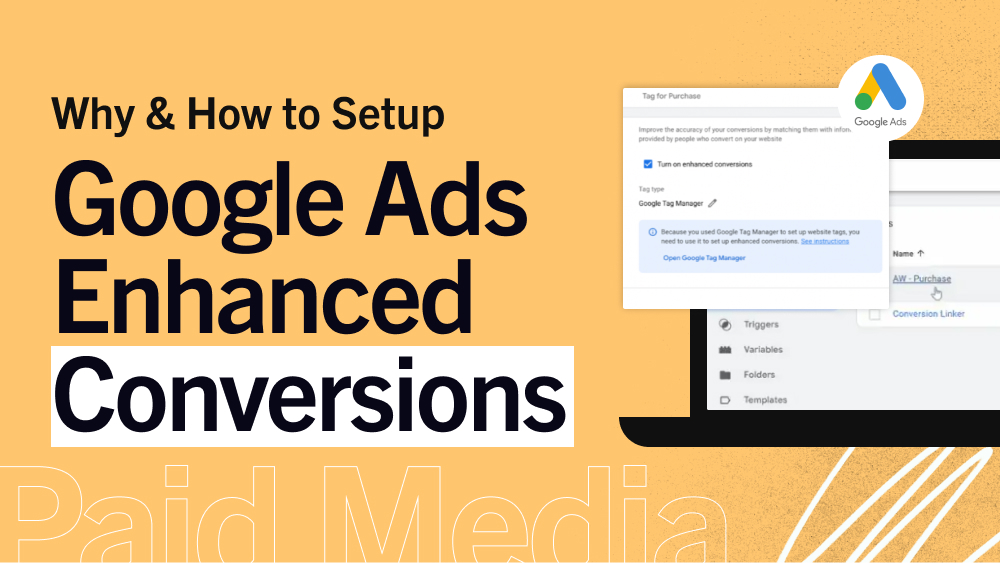What is Keyword Targeting? Essential Guide
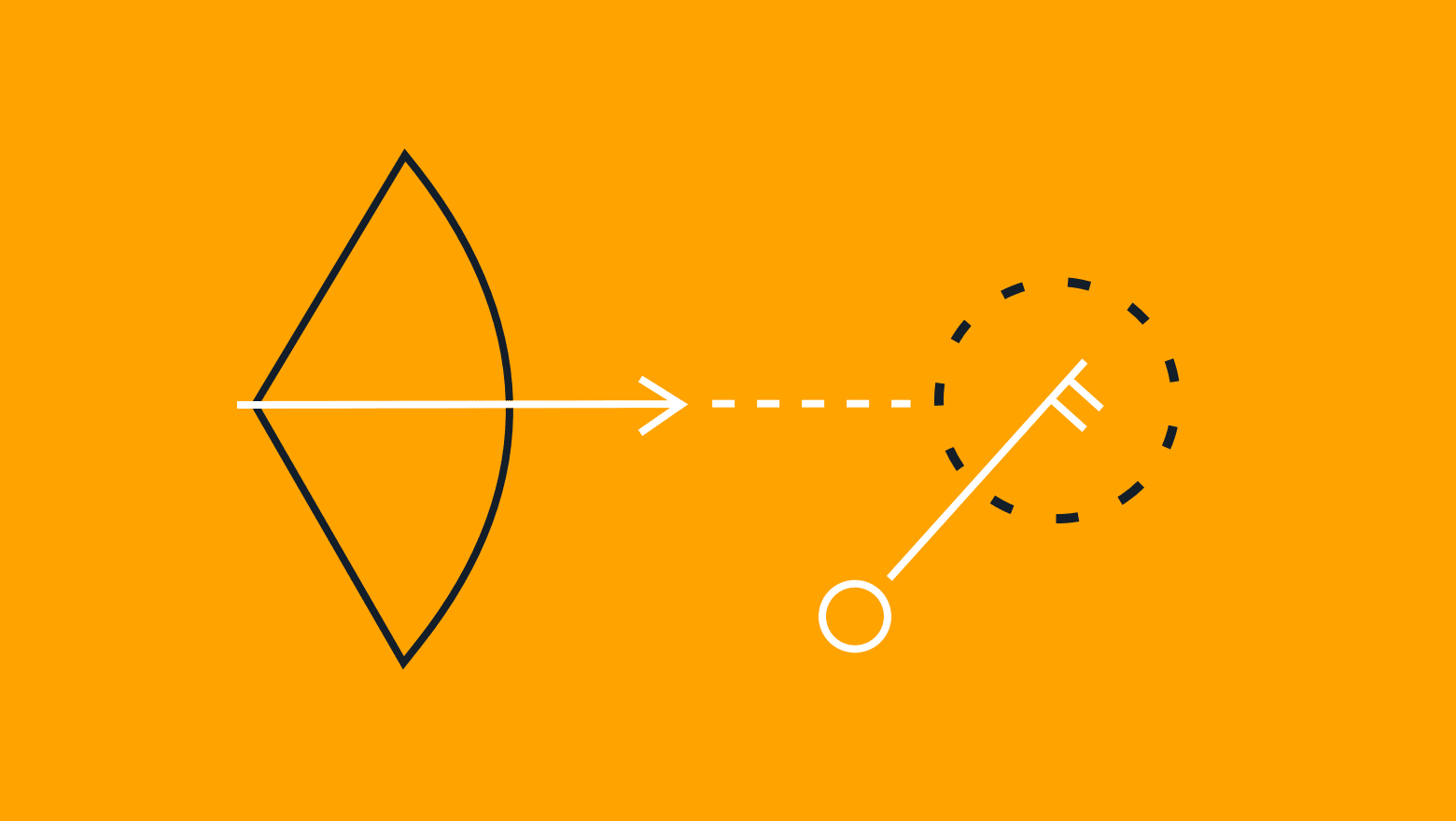
When you’re marketing your brand, products, or services on Google Ads, there are many different ways to customize how and when your ads are presented to target audiences. In addition to methods like audience segmentation and geographic targeting, keyword targeting is one of the best ways to ensure that your ads are seen by prospective customers with a genuine interest in what you’re offering.
Keyword targeting also plays a huge role in organic search, as search engines like Google use the keyword in search queries to connect users with relevant content all over the Internet, including on your website.
To help you familiarize yourself with keyword targeting and how it works in digital marketing, we’ve put together this essential guide to keyword targeting. Keep reading to learn even more about keyword targeting and how to boost your digital marketing performance by targeting the right keywords in your next campaign.
What is Keyword Targeting?
Keyword targeting is an important component of organic search marketing, paid search advertising, and paid display advertising. Marketers working across these three disciplines use slightly different keyword targeting methods to ensure that their content or advertisements are visible to audiences with a genuine interest in the products and services they offer. Here’s how keyword targeting is defined across all three mediums.
Keyword Targeting in Organic Search
The goal of most organic search marketing campaigns is to increase the visibility of the marketer’s website, products, and services in the Google or Bing search engine results pages (SERPs).
To achieve this, organic search marketers use keyword targeting to understand which search queries prospective customers are using to find their products and services online, select keywords to target, then optimize specific web pages around those keywords to rank higher in the SERPs. This process makes it more likely that the marketer’s content will rank highly in the SERPs and generate valuable organic web traffic.

Caption: SEMrush is a popular software tool used by digital marketers to conduct keyword research for organic search campaigns.
To succeed in organic search, digital marketers must choose the best keywords to target while accounting for factors like audience search intent, search volume, and competition.
Keyword Targeting in Paid Search Advertising
In paid search advertising (also known as PPC advertising), marketers run text-based advertisements that appear at the top or bottom of the search engine results pages. The advertisements that users see in these valuable ad slots depend on their search query and the keywords that it contains.
On the Google Search Network, advertisers choose which keywords to target, then bid for ad placements in SERPs that are relevant to those keywords. Keyword targeting is used to ensure that search advertisements are shown to relevant audiences, and to ensure campaign profitability by targeting the right keywords at the right cost-per-click (CPC).
Keyword Targeting in Display Advertising
Keyword targeting, sometimes called contextual keyword targeting in this context, is playing an increasing role in the world of display advertising. Here, keyword targeting is used to present text, image, or video-based banner advertisements to people who visit web pages that contain specific keywords.
Why is Keyword Targeting Important?
The importance of keyword targeting across digital marketing channels can be distilled into one single word: relevance.
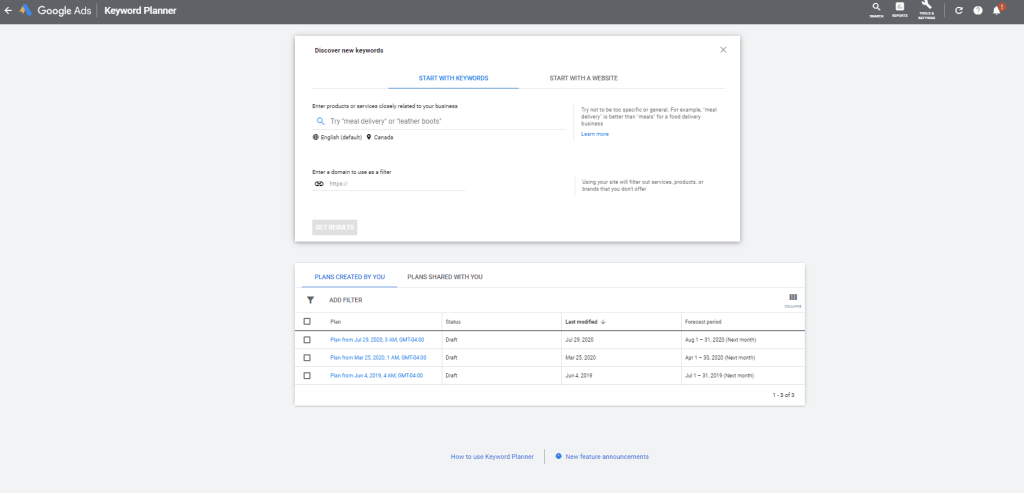
Caption: With the Google Keyword Planner, marketers can perform keyword research and discover new keyword targeting opportunities for their PPC campaigns.
The ability to target users with highly relevant content and advertisements is one of the most important factors that make digital marketing more effective than traditional mediums like print or billboard advertising. This capability is delivered and made possible by search engines and advertising networks who use keywords to understand what users want, what advertisers have to offer, and when to connect a user with a specific ad in a context that drives engagement.
The primary goal of keyword targeting in all contexts is for advertisers, search engines, and advertising networks to target users with ads that are relevant to their interests and their current state of mind.
How Does Keyword Targeting in PPC Work?
Keyword targeting in PPC advertising is a complex process. To be successful, digital marketers must understand the different types of keywords, how they relate to the prospective customer’s buying journey, and how they behave with different match types.
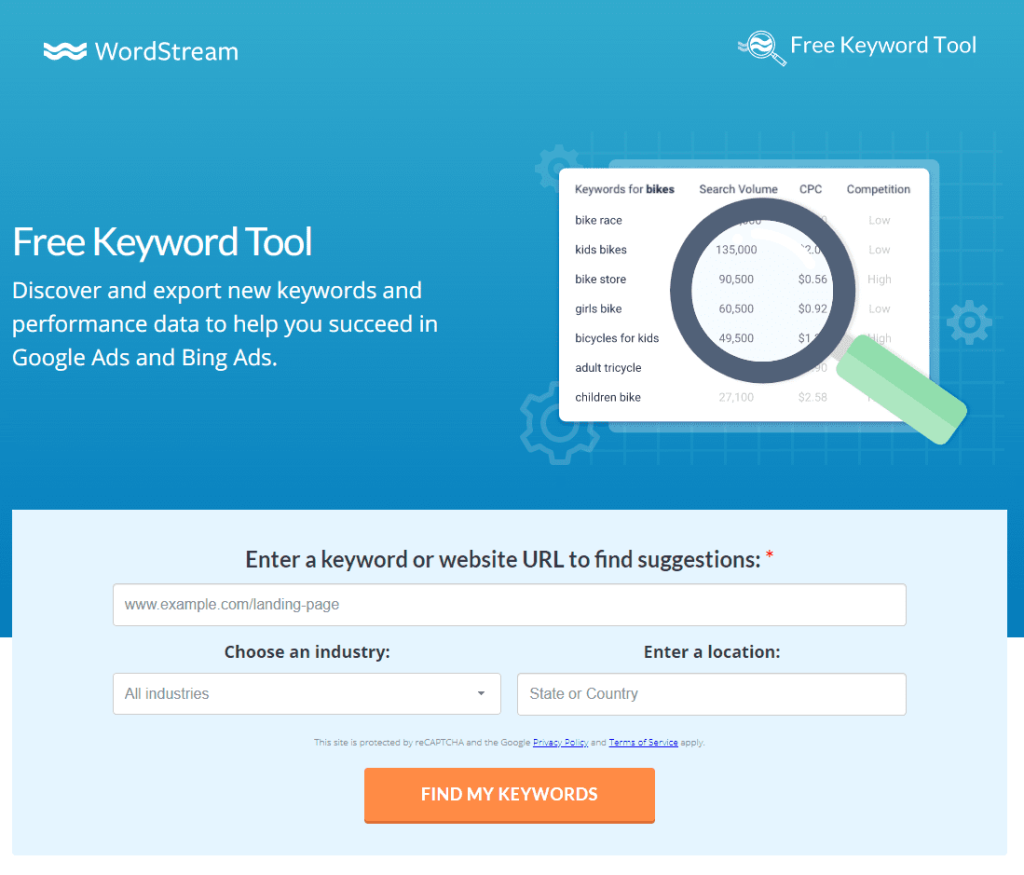
Caption: Wordstream’s free keyword tool is a well-known alternative to the Google Keyword Planner for keyword research and discovery.
Let’s review some of the most important concepts related to keyword targeting in PPC.
What are the Different Types of Keywords?
Digital advertising professionals must be aware of many different types of keywords to get the best results from their campaigns. Here’s a quick listing of the most important ones
Branded keywords are keywords that refer to a specific company, brand, or product. Branded keywords may reflect a navigational search intent where the searcher is looking for a specific organization’s website or online profile.
Informational keywords are keywords that reflect an informational search intent – the searcher is looking for information about something. Searches that start with “What is…” or “How to…” are usually informational keywords.
Transactional keywords are the most important types of keywords for digital advertising. Transactional keywords are connected to purchasing intent and the clicks they generate typically convert at a higher rate because the user is already thinking about buying. Transactional keywords may include words like ”buy”, “order”, or “coupon”, or describe a desired product or service. Keywords like “Buy Nike Shoes Online”, “Order Dog Treats in California”, or even “web design services” would be considered transactional keywords.
Short-tail keywords are just one or two words in length, while long-tail keywords contain three words or more. Short-tail keywords are usually characterized by vague search intent, while long-tail keywords are much more specific and more likely to have transactional search intent. The best keyword targeting experts focus most of their efforts on higher-converting long-tail keywords.
What are Keyword Match Types and Negative Keywords?
In addition to targeting specific types of keywords, digital advertisers can widen or narrow the scope of their Google Ads campaigns using keyword match types.
For each keyword targeted in a given campaign, marketers can choose a keyword match type that determines what kinds of search queries will trigger an ad placement. There are four options to choose from:
- Broad Match – This is the default match type setting on Google Ads. Ad placements can be triggered by any search query that is relevant to your keyword, even ones that don’t contain the keyword itself.
- Broad Match Modified – Ad placements can be triggered by any search query that is relevant to the keyword, but marketers may use modifiers to ensure that only search queries containing one or more specific words will trigger an ad placement. Google explains exactly how to set up Broad Match Modifiers.
- Phrase Match – Ad placements can be triggered by any search query that contains the specified phrase.
- Exact Match – Ad placements can be triggered only by search queries that exactly (or nearly exactly) match the target keyword.
Choosing the broad match setting gives your campaign the maximum reach, but your traffic will be less relevant. In contrast, exact match and phrase match usually result in fewer ad placements and more targeted traffic. Navigating the trade-offs between broad and exact targeting is an important component of effective keyword targeting.
A negative keyword is one that a marketer has determined should not be targeted as part of their advertising campaigns. Marketers identify negative keywords and add them to a negative keyword list to prevent their ads from being shown to users searching for those phrases. Negative keywords can also prevent ads from being shown on websites with off-brand content.
Summary
Keyword targeting plays an important rule in organic search, paid search advertising, and display advertising. Keywords allow searches to discover content on search engines that is relevant to their interests and desires. Effective keyword targeting gives digital marketers the ability to reach the right person with the right message at the right time to drive clicks, conversions, and campaign success.
To learn more about keyword targeting, check out our in-depth PPC keyword research course on Directive Institute.


